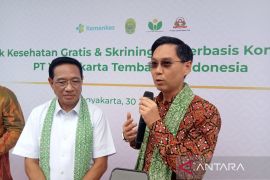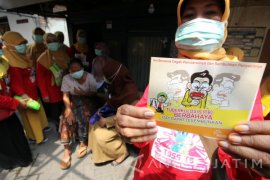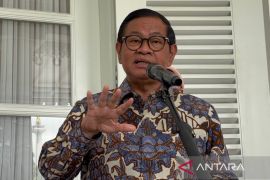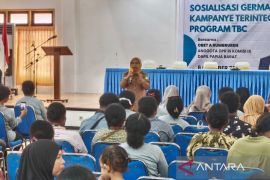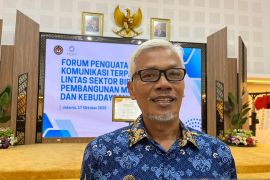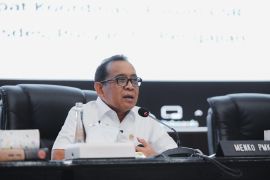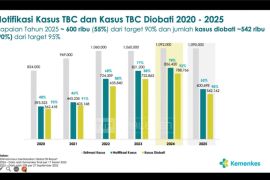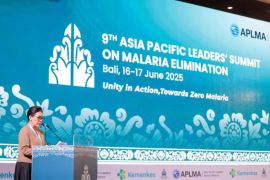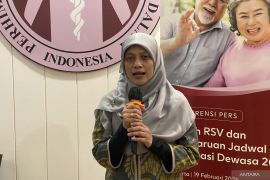When (the patient) is detected positive of TB, immediately take them to a care service facility. You must be able to ensure that the patient's contacts are recognized and identified, as this is the same as TBDenpasar, Bali (ANTARA) - Health Minister Budi Gunadi Sadikin outlined four frameworks for tuberculosis (TB) resolution that were initiated in the diplomacy at the Second Health Ministerial Meeting (2nd HMM) of the G20 in the health sector.
"TB is an infectious disease, and there are four frameworks for tackling it," Sadikin noted during the 2nd HMM press conference here on Thursday.
The first framework was to adjust to health protocols akin to COVID-19 handling through the use of masks, maintaining distance, and washing hands.
The minister remarked that a healthy environment and good air ventilation were crucial factors in TB control.
Related news: Government handles TB spread through name-, address-based surveillance
The second framework highlights the need to improve the network of disease detection laboratories in order to enhance surveillance of TB spread.
"When (the patient) is detected positive of TB, immediately take them to a care service facility. You must be able to ensure that the patient's contacts are recognized and identified, as this is the same as TB," he remarked.
He said that the monitoring of TB spread must be made more elaborate since based on a report from the World Health Organization (WHO), of the 842 thousand people identified with TB, only 200 thousand had clear identification in the form of names and addresses, among others.
"This person can spread TB. We are increasing surveillance, and PCR tests conducted in the laboratory must be combined with x-rays, so that there is different surveillance," he pointed out.
The minister remarked that TB therapy became the fourth framework to deal with the disease, with efforts ranging from the procurement of vaccines to the establishment of a network of people to look after patients.
"Indonesia has been urged by several relevant agencies to be the location to test the latest TB vaccine. There are standards for treating TB patients, (such as) they must be treated regularly for six months, (and there must be a) mechanism to be discovered that is akin to foster parents in reminding one to take medication," the minister noted.
Related news: BRIN creates device to detect TB inside, outside lungs
TB is the world's second-highest infectious killer after COVID-19, claiming nearly 4,100 lives a day. It is a major killer of people living with HIV and a major contributor to antimicrobial resistance-related deaths.
The WHO estimates that 10 million people are infected with TB every year, and eight percent of them are people in Indonesia, with 824 thousand TB cases or incidents every year.
Indonesia is the country with the third-highest number of cases of TB globally after India and China.
The target to eradicate TB by 2030, as directed by WHO, has cost implications. Recent models estimate that if the world does not resolve the global TB situation, there will be 31.8 million deaths caused by TB and US$18.5 trillion in losses over the 2020-2050 period.
Related news: Govt seeks to improve hospitals' competence in handling TB
Related news: TB vaccine ready for third phase clinical trials: minister
Translator: Andi Firdaus, Mecca Yumna
Editor: Fardah Assegaf
Copyright © ANTARA 2022


